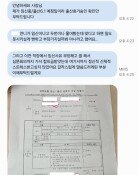China lowers yuan amid conflicts with the U.S.
China lowers yuan amid conflicts with the U.S.
Posted May. 27, 2020 07:41,
Updated May. 27, 2020 07:41
China’s currency yuan broke through the psychologically important level of seven yuan against the dollar. The People’s Bank of China put the yuan fixing at 7.1209 per dollar on Monday, an increase by 0.38 percent from the previous day. The U.S. officially named China a currency manipulator in August when the yuan became cheaper than the seven-yuan-to-dollar threshold in the midst of the trade war between the two most powerful countries in the world.
China lowering its currency value could be interpreted as a measure against repeated attacks of the U.S. regarding the Hong Kong security law and the origin of COVID-19 as well as the trade war. Many have projected that China would lower the yuan to increase its competitiveness in exports if the U.S. puts pressure on the country.
The devaluation partly comes from China’s announcement to increase the money supply and expand the fiscal deficit for large scale pump-priming worth 1,000 trillion won. It would be excusable if the relations between the two countries are amicable, but the U.S. is likely to see this as China’s deliberate effort to expand exports as the conflicts between the two countries are elevated to extremes.
The U.S. reversed its decision to brand China as a currency manipulator as the two countries made the first trade agreement on January 15. If the U.S. re-designates China as a currency manipulator for this, the trade agreement, which was signed with difficulty, would not be worth the paper and the conflicts would elevate to a more sensitive issue of currency.
South Korea is one of the countries that could bear the brunt of the currency war between the U.S. and China. Unstable currency could spell troubles both to the government and businesses as it has high dependency on exports, especially to the U.S. and China. For the moment, it could boost exports as Korean won would be depreciated along with the yuan. But the financial market may falter if dollars evade the South Korean market.
But there is no other way to go around this. The South Korean government should monitor the foreign-exchange market meticulously and make every effort to intervene as long as it is globally acceptable. It should build robust seawalls to ward off external waves by securing global competitiveness and financial health to prepare for the difficult times.
Headline News
- N. Korea launches cyberattacks on S. Korea's defense companies
- Major university hospital professors consider a day off each week
- Italy suffers from fiscal deficits from ‘Super Bonus’ scheme
- Inter Milan secures 20th Serie A title, surpassing AC Milan
- Ruling and opposition prioritize spending amid tax revenue shortfalls







